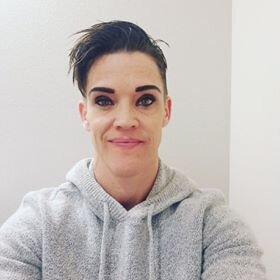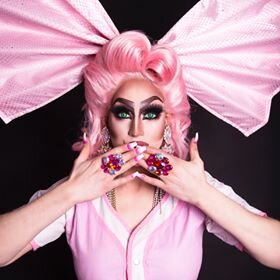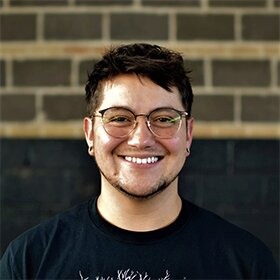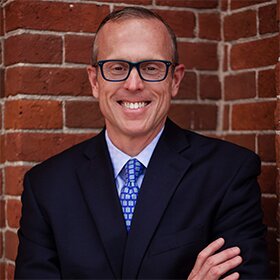Colorado Voices: Is fairness contagious too?

Editor’s note: Covid-19 is revealing inequities of the U.S. Health Care System – especially for those who are already marginalized. For one Denver resident who transitioned gender a year ago and their partner, this pandemic brings new meaning to “community.” To “access.” To “equality.”
“Can you imagine if this crisis happened a year ago?”
We locked eyes and Alex responded with a long, painful exhale. “It would have been torture.”
Alex is my partner. Alex is non-binary, trans-masc, pronouns are They/Them/Their. They are one year into their transition.

Although this was a truth they had recognized for decades, only a year ago, Alex transitioned from AFAB (Assigned Female At Birth) to their truth at age 41. The year of their transition was filled with coming out to friends, family and co-workers. As their partner, I stayed by their side, and watched an almost daily act of courage as they introduced themselves to people who had known them for decades, “I go by Alex now, my pronouns are They, Them, Their.” Most people embraced Alex, even if they found themselves confused. Alex would get questions that were invasive and would answer as politely as possible without revealing the most private parts of their journey. Sometimes Alex was given a hand wave of, “Oh whatever – I don’t get pronouns.” No matter what challenges Alex faced – misgendering, walking into bathrooms, repeatedly hearing their dead name, questions, stares, questions, stares – they will tell you, the transition was life-saving.
When the shelter in place orders for Covid-19 happened, my mind went to LGTBQ youth. Some are humans in the midst of a transition who have lost access to their community support. Humans living in an unsupportive or unsafe environment, unable to be addressed with their name and gender. Limited or no access to mental health professionals or community centers to provide support. Loss of jobs and therefore medical resources that are imperative during a transition. Loss of security, potential loss of a home – with no family to return to. Potentially facing a job market where “Queer” is decidedly not welcome to apply.
Thankfully, Alex transitioned before the pandemic. Alex transitioned with a mental health professional. Alex transitioned with a job that provided a paycheck and provided health insurance. Alex transitioned and was able to get the care that was needed. Alex transitioned belonging to part of a community – in particular the drag community of Denver – where they were embraced and SEEN. Having that space saved Alex many, many times. Again my question: “Alex, what would this have been like to try and transition now? Because it wasn’t easy even with all the resources….”
“Kim, it would have been torture.”

If you are out there, searching for connection, praying to be seen, transitioning, questioning, or out for decades – remember our truth: You are never alone.
The COVID-19 crisis will disproportionately impact under-represented communities in both their health and job security, while also compounding longstanding racial disparities in health and economic conditions. And it is clear that many people of color and the LGTBQ Community – particularly youth, or of combined or different identities – are in need of extra support as the coronavirus crisis deepens.
As community members, how do we cope? What do we need to do for a better tomorrow? I reached out to some wise people I know for guidance. My hope is that their generosity of time and heart will help someone who needs kindness, compassion and hope right this minute.
Miss Jessica: Drag Community Member
Pronouns In Drag: She/Her/Hers
Anaya Robinson
Associate Director | Atlantis Community, Inc.
Pronouns: He/Him/His
Q: How can we come out of this COVID-19 pause better than we went into it? Can a pandemic be a thing that is so devastating it could wake people up to inequity?
Steven: Beyond its tangible impacts on our physical and emotional health, we believe that COVID-19 exposes an underlying pandemic of inequality that renders the economically disadvantaged in our society more vulnerable to health crises – especially racial and ethnic minorities, transgender individuals, and young queer people who are particularly vulnerable to housing instability. It is they who bear the brunt of this crisis and should be prioritized as we face this pandemic.
Its impact now stares us in the face and teaches us important lessons about progress and humanity: what ails one, ails us all; what elevates one, must elevate us all. This pandemic reminds us, painfully, of the recklessness of turning our backs on society.
LGBTQ+ Americans are more likely than other people to lack necessities and face the challenge of living in poverty during this pandemic…The impact on LGBTQ+ elders is also profound as they frequently have less access to culturally competent services compared to their peers, are socially isolated, and often lack the financial resources to meet their basic needs.
Anaya: I think we really need to allow ourselves to recognize that the way our systems and economy were set up prior to COVID were not sustainable and far from equitable. We have a real opportunity now to look at how those systems and structures can be reshaped or rebuilt to strengthen and stabilize us for the future... I want to believe in the ability of devastation to force change, because if it can't, what will?
Miss Jessica A: I think people will learn to be more compassionate. Learn… that life is so short, and you have the ability to live every single day. This is the halt we never thought we needed as humans.
Q: What tangible steps can folks outside your community take to help make real change?
Steven: Everyone is at risk of infection in this pandemic. But history shows that people who are marginalized and consequently experience disparities in health will suffer disproportionately greater harms than the general population… As LGBTQ+ people, we are far too familiar with discrimination and stigma—and with epidemics. We urge everyone involved in the response to COVID-19 including treatment providers, educators, and media—to take steps to ensure LGBTQ+ communities are equitably served.
Anaya: Utilize your power and privilege as leverage. Talk to the people in your circles and challenge them on their beliefs, their actions, their "jokes." Build relationships with people who hold identities that you don't, while never using us as examples of how "progressive" you are. Align your money with your values. Align your language with your values. Vote… Create spaces that are accessible, affirming, and safe before you are asked to.
Dr. Jae: Listen to those who are Black and brown, disabled, low income, undocumented, students, youth. While we may not be at your table of making decisions, we do have experience and knowledge that is helpful. We are resourceful and can give an objective point of view. Take a look around, and if you have all white people at the table, know you are doing something wrong and it would be worthwhile to assess your values and how you plan to move forward after this crisis subsides, cause truth be told, it’s not going away anytime soon and we will be managing the impacts of this for years to come.
Q: What three things top your wish list for helping your community?
Steven:
1. A real concern for LGBTQ+ people during this pandemic is that we know they avoid seeking needed mental health care due to previous experiences of discrimination in these settings or the fear of discrimination. All people who need behavioral health support should be able to receive care without worrying about being mistreated, harassed, or denied service outright.
2. The entire community, especially transgender, Black, Indigenous and people of color, will be able to access the behavioral health care system – regardless of their ability to pay for services. For so many queer people financial barriers including unemployment, underemployment, lack of insurance coverage or policies that deny important care, lead to deleterious impacts on their mental health including an increase in substance use, depression, anxiety as well as suicidality...
3. …Research suggests that some subgroups of the queer community are more likely to suffer from certain chronic conditions and face higher prevalence and earlier onset of disabilities compared to heterosexuals. As a result, access to low-cost or no-cost prescription medication is essential to ensure medical and mental health conditions are effectively treated.
Anaya: Access, equity, and representation.
Dr. Jae: 1) To have a community house that is specifically for QTBIPoC/QTPoC/LGBTQ folx to get on our feet. A safe space that is run by and for our community where we have the resources to look for jobs, connect with mental health folx and community resources. To have a space to stay if people are getting affirming surgery and don't have a stable place to lay their head. 2) …more support in our community as it pertains to affirming and affordable care, insurance that covers our health needs and doctors who will listen to us when we present an issue, instead of telling us that they know our bodies and issues more than we do. 3) I want to see more representation in our local government, corporate and non-profit settings.
Miss Jessica A: The first is creating a way to pay and support entertainers, local business, and nightlife people financially that also makes them feel appreciated and valued. The second is to remind people and emphasize that these hardships are the challenges that make the community the strongest they could be through messages, lives, and providing content that reminds them of the highlights of living. The final thing is reminding people they aren’t forgotten. Checking in, sending messages that say, “Hey! I’m thinking about you today and I love you!”
Q: What is the best outcome you could hope for after this pause?
Dr. Jae: The best outcome that I could hope for after this pause is the acknowledgement that we can never go back to what was and that we have an opportunity to make real solid changes to the systems that have been oppressive…that actually allows folx a chance to succeed.
Miss Jessica A: [I hope] people come out of this more sympathetic, more loving, more compassionate, more understanding, filled with love, filled with life, more creative, holding less grudges, more body positive, and above all, thankful to be alive.
Steven Haden
Co-founder | Envision:You
Co-chair | Colorado Behavioral Health & Wellness Summit
Pronouns: He/Him/His
MY GURUS


Tara Jae, PhD, MFA
Pronouns: they/them/their
Founder | Executive Director of Youth Seen
MY QUESTIONS | THEIR ANSWERS


